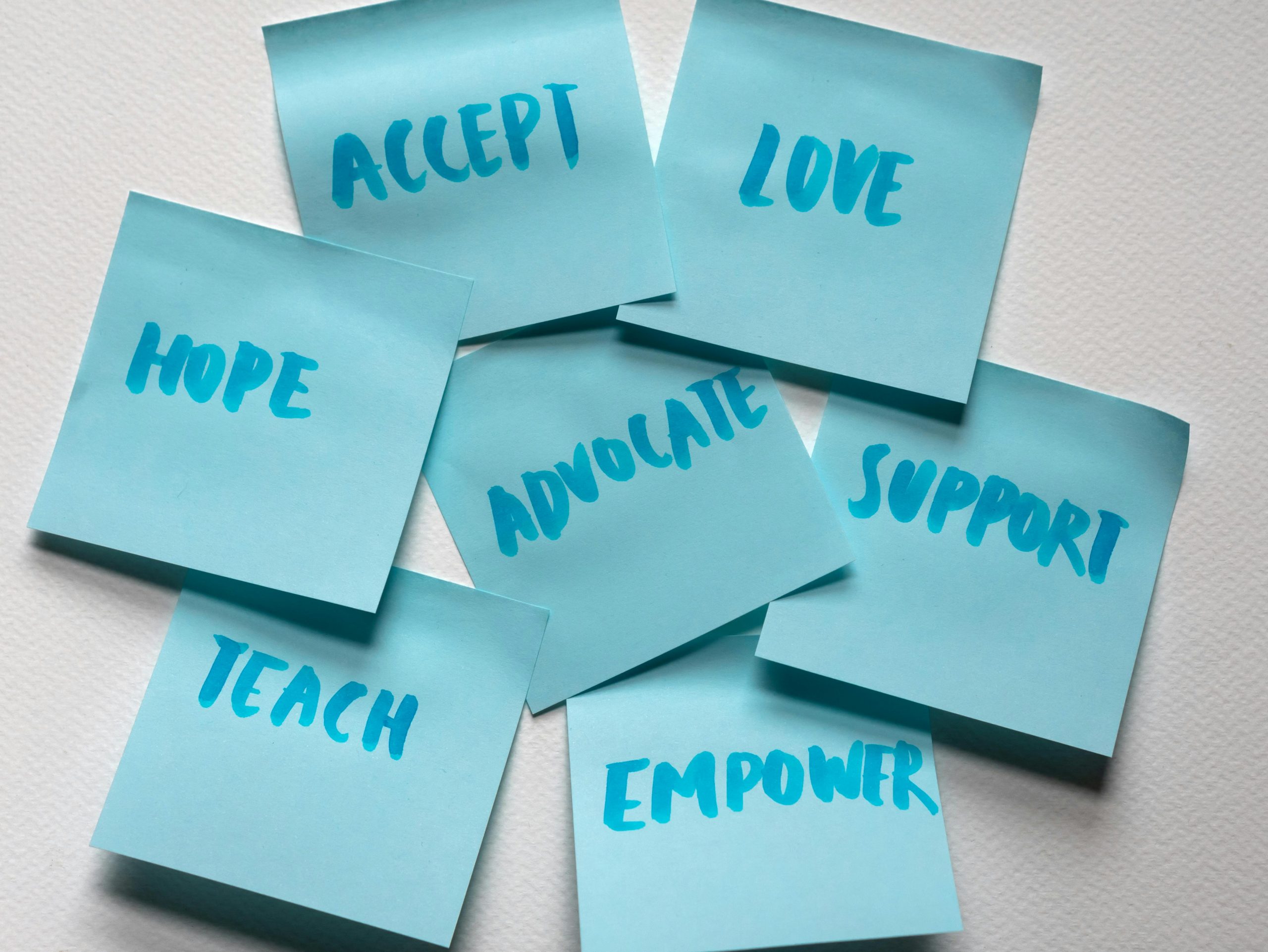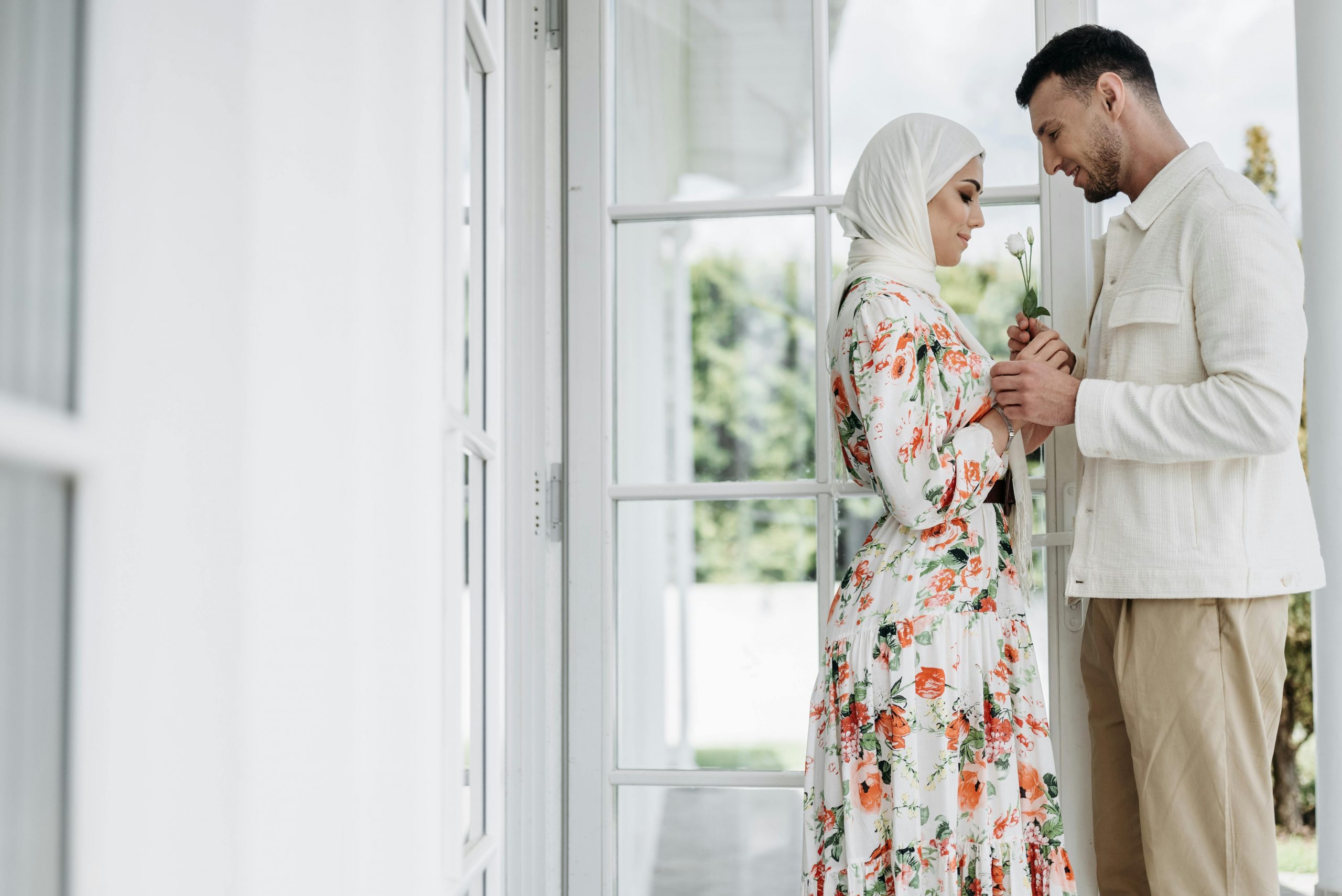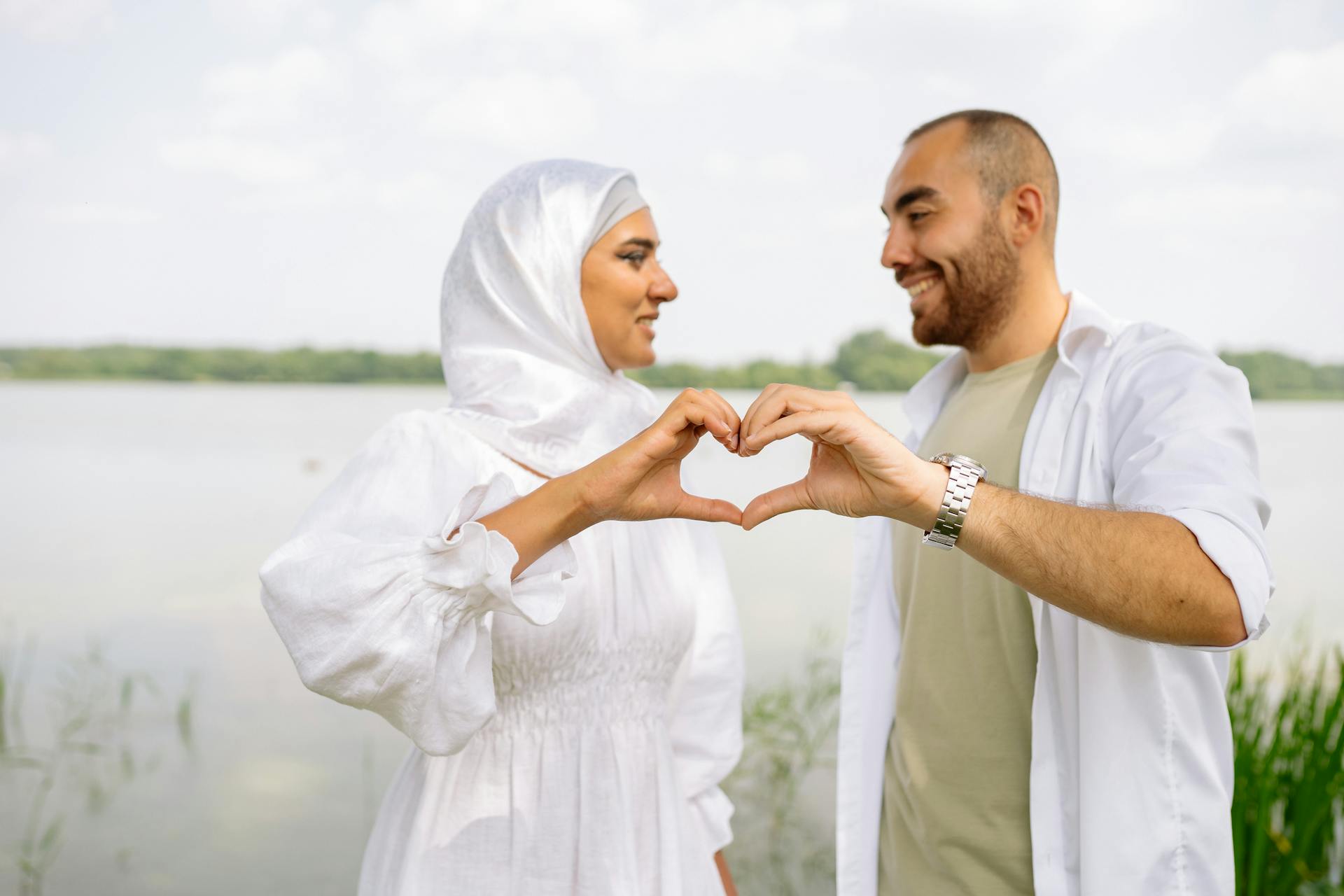
Heartlines of Mawadda: Interpreting the Five Love Languages through an Islamic Lens
Love, Mercy, and the Map of the Heart Modern relationships often borrow from psychology to understand how people give and receive love. One influential framework is the “five love languages.” Yet for Muslims, love is not merely a feeling; it is an amanah (trust) guided by Qur’an, Sunnah, and an ethic of ihsan (excellence). Allah says, “And among His signs is that He created for you spouses from yourselves that you may find tranquillity in them; and He placed between you affection (mawadda) and mercy (rahma)” (Qur’an 30:21). This verse anchors the Muslim marriage in divine purpose.
Therefore, viewing the five love languages islam through an Islamic perspective offers something richer than technique—it becomes a path to worship and a means to cultivate the heart. In Islam, good character is the core of faith; the Prophet Muhammad (peace be upon him) said, “The best of you are the best to their families, and I am the best to my family.” When we align how we express love with Shariah principles, we nourish marriages that are safe, sincere, and sustainable.
From Mawadda and Rahma to Love Languages—An Islamic Framework The five love languages—words of affirmation, quality time, acts of service, gifts, and physical touch—are simply ways people feel valued. They are tools, not truths. Islam provides the truths: tawhid, taqwa, mercy, justice, modesty, and responsibility. Consequently, we use these tools within the boundaries of halal, infusing them with sincerity and prophetic character.
Moreover, Islam emphasises intention. When we speak kindly, sit with presence, serve one another, give gifts, or offer affection, we can intend Allah’s pleasure. The Prophet (peace be upon him) taught that spending on one’s family is a form of charity if done seeking Allah’s reward. Therefore, each language of love becomes an act of worship—when grounded in ethics and sincere niyyah.
Words of Affirmation—Qawlan Tayyiban (Good, Beautiful Speech) Words of affirmation, framed Islamically, echo Qur’anic standards for speech: qawlan ma‘rūfa (appropriate), qawlan karīma (honourable), qawlan layyinan (gentle). Allah commands, “And speak good to the people” (Qur’an 2:83) and “A good word is like a good tree” (Qur’an 14:24). Even a smile is charity, so how much more weight do sincere words carry when they protect dignity, heal wounds, and affirm value?
Practically, this means replacing sarcasm with sincerity; it means saying, “I appreciate how you supported me today,” or, “Your patience under pressure inspires me.” In moments of tension, choose restraint. Avoid public criticism. Praise in private, advocate in public. Always remember: a kind word costs nothing but returns everything. Nevertheless, affirmations must be truthful; flattery undermines trust, while honest praise builds it.

Quality Time—Hudur (Presence), Suhbah (Companionship) Quality time in Islam begins with presence. The Sunnah shows the Prophet (peace be upon him) listening fully, calling people by their best names, and giving each person a sense of being seen. With his wives, he shared moments of playfulness and companionship; authentic narrations describe him racing with Aisha (may Allah be pleased with her), illustrating that time together includes lightness and joy.
Modern life tests presence. Phones fragment attention; commuting and careers can exhaust energy. Yet, we can still prioritise connection. Establish daily check-ins—ten minutes of undistracted conversation. Hold a weekly “family shura” to share gratitude, discuss plans, and address issues early. Moreover, nurture spiritual companionship: recite Qur’an together, make dua for one another, and occasionally pray side by side at home. Time isn’t only counted in hours; it is measured in undivided attention.

Acts of Service—Khidmah and Ihsan in the Home Acts of service are deeply Islamic. The Prophet (peace be upon him) helped in the household; when asked about his home life, his wife Aisha (may Allah be pleased with her) said he mended his own clothes and served his family. He modelled shared responsibility and tender leadership. Furthermore, he taught that the strongest believers are best in character, which includes serving without scorekeeping.
In today’s homes, khidmah includes errands, childcare, budgeting, emotional labour, and managing the invisible “mental load.” When you serve, do so willingly, not as leverage. State needs clearly; respect limits. Rotate tasks fairly. If one spouse works late, the other can cover meals. If a spouse studies, the other can shoulder bedtime routines. Consequently, acts of service become not just chores—but choreography, where both partners move in sync with mercy.

Gifts—Hadiyya, Generosity, and Simple Joys The Prophet (peace be upon him) said, “Exchange gifts and you will love one another.” Gifts in Islam emphasise intention over extravagance. A book chosen thoughtfully, a favourite dessert, a handwritten note, or a small bouquet can communicate profound care. Moreover, gifts can honour Islamic milestones: celebrating a khatm of Qur’an, acknowledging a new hijab journey, or welcoming a new job.
Beware of consumerism. Lavish displays can create pressure or debt. Islam honours simplicity and balance; the best gift is often the one that arrives with sincerity at the right moment. Husbands should also remember that the mahr (dower) is a Qur’anic right and symbol of honour. Above all, a gift should never be used to control or compensate for mistreatment. Gifts complement good character—they never replace it.

Physical Touch—Halal Affection, Consent, and Mercy Physical touch, within marriage, is an essential love language that can comfort, reassure, and deepen intimacy. Islam encourages warmth between spouses and recognises sexuality as a blessing when kept within halal. A gentle touch on the shoulder, holding hands in private, a hug after a hard day—these gestures say, “I am here.” Emotional safety often precedes physical closeness, so invest in kindness first.
Consent and consideration are Islamic virtues. The Qur’an commands, “Live with them in kindness” (Qur’an 4:19), reminding spouses to be attentive, patient, and responsive. Additionally, times of illness, fatigue, pregnancy, or stress require extra sensitivity; discuss needs openly and respect boundaries. Before nikah, touch remains off-limits; modesty and restraint preserve dignity and trust. After nikah, nurture affection as an act of gratitude to Allah, not as entitlement.

When Love Languages Collide—Miscommunication and Mercy Sometimes a spouse speaks acts of service while the other hears only silence because they need words of affirmation. Another couple may value quality time, yet one partner fills every moment with chores. These misalignments can breed resentment. However, most conflicts contain a signal: “I want to feel loved in a way that reaches me.” The solution begins with curiosity.
Schedule regular check-ins. Ask, “What’s one thing I did this week that made you feel loved? What’s one thing I can improve?” Reflect, then adjust. Moreover, apologise well. Islam teaches humility and reconciliation; saying “I was wrong” protects the heart from arrogance. Remember: your spouse is not your opponent—shaitan is your shared enemy. Unite against the problem, not against each other.
Discovering Love Languages Before Marriage—Halal Courtship, Clear Intentions For those seeking marriage, understanding love languages can guide compatibility—but it must stay within Islamic ethics. In pre-marital conversations (with appropriate guardianship or chaperoning), discuss what makes you feel appreciated. Share how you express care during stress. Consequently, you create realistic expectations and avoid reading signals through culture alone.
Set boundaries early. Agree on appropriate communication channels, times, and topics. Involve families or trusted guardians to maintain transparency and protect both parties. Moreover, prioritise marriage education—learn communication skills, conflict resolution, financial planning, and Islamic rights and responsibilities. These foundations will support your chosen love languages long after the wedding day.
Safety, Dignity, and Digital Trust—Building Love on Solid Ground In the digital age, romance fraud and deception exploit good intentions. Therefore, Muslims seeking marriage need platforms that protect identity, privacy, and trust. A values-driven, Shariah-compliant approach verifies identities, deters predatory behaviour, and upholds haya (modesty). When trust is safeguarded, couples can focus on genuine compatibility instead of fearing deceit.
Muslim Marriage Services (MMS) advances this standard by verifying every member through Yoti, a Certified B Corporation and leader in AI identity solutions. Moreover, features like DynamIQ Guardian enable optional mahram monitoring for safer conversations, and ProfileShield allows secure profile sharing with guardian approval. This ethical infrastructure supports halal engagement so that learning each other’s love languages can happen with confidence and dignity.
A 30-Day Sunnah of Love Plan—Practical Steps That Stick Grand gestures fade, but small, steady habits grow love. Commit to a simple 30-day plan that touches all five languages while centring Islamic virtue. Begin with intention: “O Allah, I serve my spouse for Your sake.” Then choose concrete actions, schedule them, and review weekly together.
Try this rotation:
- Words of affirmation: Offer one sincere compliment daily; send a dua message midweek; express gratitude in front of the family once.
- Quality time: Hold a 10-minute nightly check-in; plan one device-free meal; schedule a weekly walk-and-talk.
- Acts of service: Remove a recurring burden (e.g., dishes after iftar); handle an errand your spouse dislikes; create a restful corner at home.
- Gifts: Share a favourite snack; give a meaningful book; write a note with a Qur’anic verse that speaks to your spouse’s current season.
- Physical touch (within marriage): Offer a shoulder massage after a long day; hold hands during a heartfelt conversation; hug for a full 20 seconds to reduce stress.
Moreover, add spiritual anchors: make dua for your spouse by name after each salah, recite a short surah together once a week, and give small sadaqah in your spouse’s honour. Review progress after 30 days and renew your niyyah. If something didn’t work, adapt; if something delighted, make it a habit.
Culture, Family, and the Wider Ummah—Loving Beyond the Couple Islamic marriage exists within families and communities. For many, in-laws, siblings, and elders shape expectations. Misunderstandings often arise when cultural norms are treated as religious obligations. Approach differences with adab (etiquette): seek common ground, establish healthy boundaries together, and present a united, respectful front. Moreover, include elders meaningfully—ask for stories, recipes, or advice when appropriate; honour does not require surrendering your marital privacy.
Additionally, love languages can extend outward as sadaqah. A couple that serves neighbours, mentors youth, or contributes to a marriage fund transforms private affection into communal mercy. When spouses stand shoulder to shoulder for the ummah—volunteering, learning, and giving—they discover a shared purpose that strengthens their bond at home.
Common Pitfalls—And How to Avoid Them
- Transactional thinking: “I did X; you must do Y.” Replace scorekeeping with generosity. Seek Allah, not leverage.
- Over-reliance on one language: Variety matters. Rotate expressions to reach different needs.
- Ignoring seasons of life: Needs change through pregnancy, illness, grief, career shifts, or caring for parents. Reassess regularly.
- Public performativity: What looks pious online can feel hollow at home. Private sincerity is worth more than public display.
- Avoiding necessary conversations: Love languages cannot compensate for unresolved conflicts, financial secrets, or boundary violations. Address root issues with honesty and, when needed, professional help from qualified, faith-sensitive counsellors.
A Note on Singles, Reverts, and Late-Starters Many Muslims delay marriage due to studies, careers, or limited halal options. Others return to faith later or enter the search after divorce. If that’s you, take heart. Use this time to learn your primary and secondary love languages, build emotional regulation, and invest in community. Moreover, seek platforms that align with your deen and that reduce risk while promoting serious, values-driven matches.
For those navigating complex family dynamics or cultural pressures, remember that Islam grants you dignity and choice. Seek support from scholars, mentors, and ethical services that respect your voice. You deserve a process that safeguards your heart and your future.
Bringing It All Together—A Du‘a and a Direction The five love languages islam can be powerful when wrapped in Islamic guidance. Words honour dignity, time builds trust, service deepens devotion, gifts spark joy, and touch communicates comfort—within the bounds of the Shariah. Above all, everything begins and ends with tawfiq from Allah.
Make this dua together: “O Turner of hearts, keep our hearts firm upon Your obedience. Place between us mawadda and rahma. Make us garments for one another, sources of tranquillity, and helpers on the path to Jannah.” Then act on it—consistently, gently, and with gratitude for every small success.
About MMS: Building Trustworthy Paths to Nikah As a Certified Social Enterprise, MMS exists to restore trust and protect dignity in the marriage journey. Every member is verified through Yoti for identity assurance. DynamIQ Guardian offers optional mahram monitoring for safer engagement, and ProfileShield enables secure profile sharing with guardian approval. Moreover, MMS invests in education, coaching, and community support—so your values guide your choices from first conversation to family life, insha’Allah.

